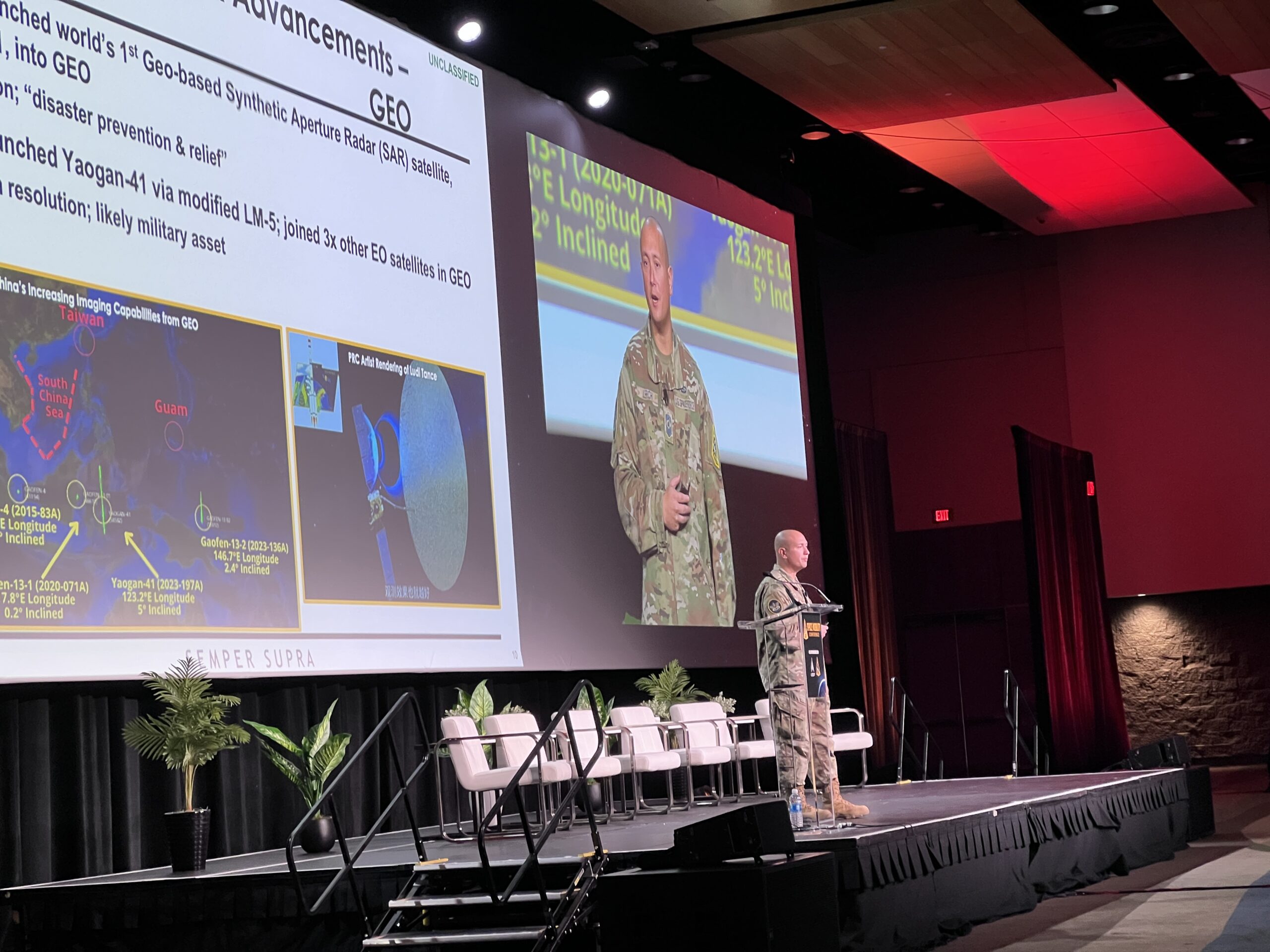WASHINGTON — The Space Force is gearing up for a major procurement of strategic communications satellites that provide nuclear-survivable communications for the U.S. military and national command authorities.
The Space Systems Command expects to issue a request for proposals in early 2024 for the Evolved Strategic Satellite Communications System (ESS) constellation, a program estimated to be worth $8 billion.
“We have a request for proposals coming in January for the space vehicle piece,” said Cordell DeLaPena, program executive officer for military communications and PNT.
ESS will be a “survivable and jam-resistant satcom capability for the NC3 mission,” DeLaPena said last week at the AFCEA Space Industry Days conference in Los Angeles.
NC3 is short for nuclear command, control and communications, a network intended to ensure that national command authorities can maintain secure control of strategic forces on land, at sea and in the air even during a nuclear war.
The ESS satellites are intended to augment and eventually replace the Advanced Extremely High Frequency (AEHF) network of nuclear-hardened satellites made by Lockheed Martin, with payloads supplied by Northrop Grumman.
Prototypes in development
Boeing and Northrop Grumman were selected in 2020 to build ESS satellite prototypes, which are still in development and will be evaluated in a side-by-side competition.
Both companies are expected to compete for the production contract. The Space Systems Command has not revealed how many satellites will be procured for the ESS network. DeLaPena in his briefing said the ESS space segment is an $8 billion program, and the goal is to start production in 2025 and field a new constellation by 2030.
In budget justification documents, the Space Force said ESS will be a “proliferated and resilient architecture” of interconnected satellites in geosynchronous and highly elliptical orbits.
The Space Force is running a separate program for the ground segment of ESS, and selected Lockheed Martin and Raytheon to develop competing ground system concepts.
The ESS program also has a crypto segment, or systems that provide secure data encryption in the ESS payloads and satellite buses. DeLaPena said industry proposals for the crypto segment were submitted earlier this year and a contract will be awarded in the coming months.



